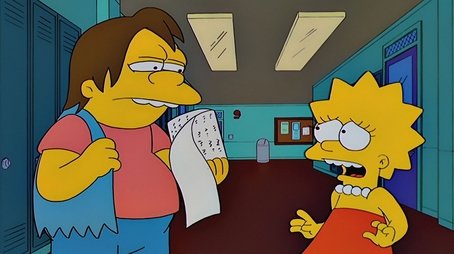
Sorry, we have not watched this yet.

Stuck at home with a cold, Lisa gets addicted to a video game and neglects her homework. Her A+++ on a test wins the school a grant, but when she confesses that she cheated, Skinner covers it up. Meanwhile, Homer raises a lobster.
Sorry, we have not watched this yet.